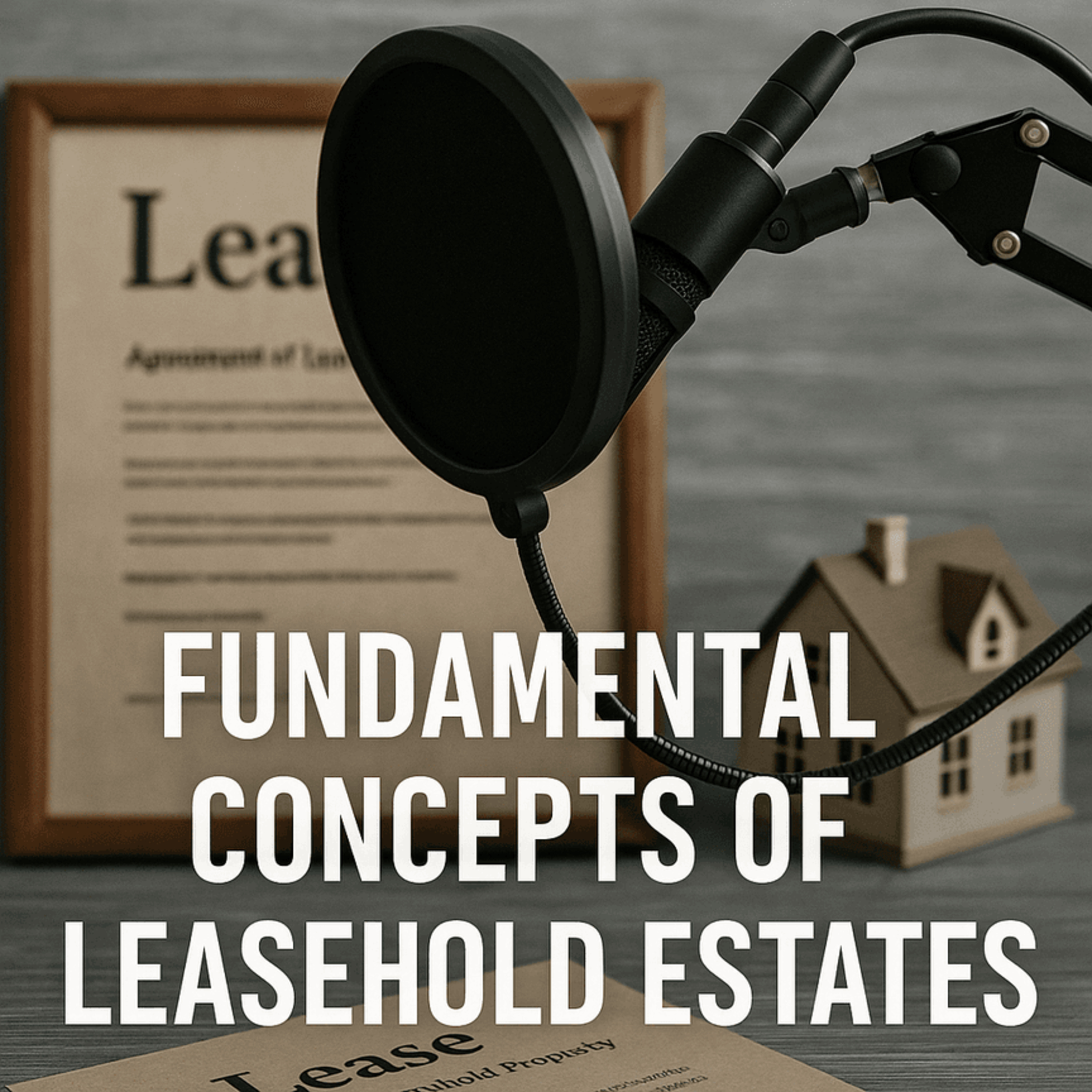Podcast Episode Details
Back to Podcast Episodes
Property Law Lecture Fifty-Four – Landlord-Tenant Law: Leasehold Estates and Duties
Understanding leasehold estates is crucial for anyone involved in real estate, whether you're a tenant, landlord, or investor. These estates define the relationship between the property owner and the tenant, outlining the rights and responsibilities of each party. Let's delve into the fundamental concepts that govern leasehold estates.
Types of Leasehold Estates: Leasehold estates come in various forms, each with unique characteristics. The most common types include estate for years, periodic tenancy, tenancy at will, and tenancy at sufferance. Each type dictates the duration and terms of the lease, impacting both the tenant's and landlord's rights.
Rights and Responsibilities: In a leasehold estate, the tenant has the right to possess and use the property for a specified period, while the landlord retains ownership. Both parties have specific responsibilities, such as maintaining the property and adhering to the lease terms. Understanding these rights and duties is essential for a harmonious landlord-tenant relationship.
Leasehold estates are a cornerstone of property law, providing a framework for rental agreements. By grasping these fundamental concepts, you can navigate the complexities of real estate with confidence. Whether you're renting a home or managing properties, knowledge of leasehold estates is invaluable.
Takeaways
Landlord-tenant law is a critical area for law students.
Leasehold estates grant tenants possessory interests in land.
Exclusive possession differentiates leases from licenses.
The implied warranty of habitability protects tenants.
Tenants have a duty to pay rent and avoid waste.
Landlords must deliver possession and ensure quiet enjoyment.
Tenants can terminate leases for landlord breaches.
Eviction processes are highly regulated and require court involvement.
Security deposits are subject to strict statutory regulations.
Modern reforms are shifting landlord-tenant law towards consumer protection.
Subscribe Now: Stay informed about real estate trends and insights by subscribing. Don't miss out on updates!
landlord-tenant law, leasehold estates, tenant rights, landlord duties, eviction, habitability, security deposits, statutory reforms, commercial leases, residential leases
Published on 3 months, 3 weeks ago